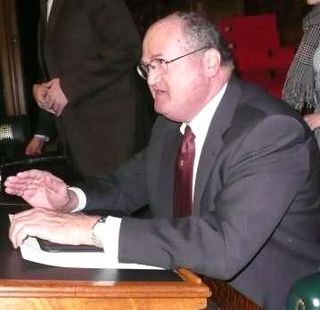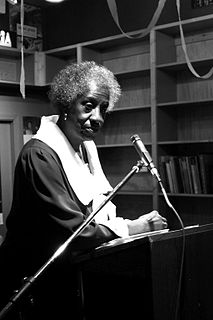A Quote by William J. Duiker
What is the influence of Sun Tzu in the world today? Perhaps there are others who are better qualified than I to speculate about that question. Sun Tzu's ideas, as expressed in his famous treatise, have undoubtedly influenced the nature of many revolutionary movements that are arrayed against more powerful forces, and in some cases - as in Vietnam - have played a useful role in bringing about success. But such ideas are always in conflict with other deepseated emotional factors, which propel dissident movements into the rampant use of terrorism and other forms of anarchistic struggle.
Quote Topics
About
About Success
Against
Always
Better
Bringing
Cases
Conflict
Emotional
Expressed
Factors
Famous
Forces
Forms
His
Ideas
Influence
Influenced
Many
More
More Power
Movements
Nature
Nature Of Man
Other
Others
Perhaps
Played
Powerful
Powerful Force
Propel
Qualified
Question
Rampant
Revolutionary
Role
Some
Speculate
Struggle
Success
Sun
Terrorism
Than
Today
Undoubtedly
Use
Useful
Vietnam
Which
World
World Today
Related Quotes
The influence of Sun Tzu on other North Vietnamese military strategists is harder to answer. Certainly many of the key leaders in Hanoi were aware of Sun Tzu and made use of his ideas - Vo Nguyen Giap applied many of these ideas in seeking out weak elements in the enemy's defenses, as did Truong Chinh, whose famous treatise, The Resistance Will Win (1947), cited the ideas of Mao Zedong as a model for the North Vietnamese to follow.
Paraphrased: When Chuang Tzu was about to die, his disciples began planning a splendid funeral. However some disciples expressed concern that given a particular arrangement, birds and kites would eat his remains. Chuang Tzu replied, "Well, above ground I shall be eaten by crows and kites, below it by ants and worms. What do you have against birds?
There were various aspects of Sun Tzu's approach that appealed to Ho Chi Minh: a) to learn to understand both the enemy and yourself, to seek out his weaknesses and your own strengths, and act accordingly, b) to make ample use of subterfuge and stratagem in order to defeat or disarm your adversary, and c) to use outright violence only when absolutely necessary in the belief that political struggle was more effective than military struggle.
One should be cautious about "general conceptions." I think a strong case can be made that activism today is as high as ever, perhaps more so, and is also taking new and significant forms. There has never been anything like the international solidarity movements that began to take shape in the 1980s, right in the mainstream, or the global justice movements that have become a very powerful force in later years. It's true that the society is highly atomized, which does induce a sense of hopelessness often - quite mistakenly I think.
Change depends on people knowing the truth. Change depends on people speaking that truth out loud. That's what movements do. Movements educate people to the truth. They pass along information and ideas that many others do not know, and they cause them to ask questions, to challenge their own long-held beliefs. ... Movements are the way ordinary people get more freedom and justice. Movements are how we keep a check on power and those who abuse it.
Ho Chi Minh was well aware that the enemy possessed more firepower than did his own forces, and sought to use what he viewed as the superior political and moral position of his own revolutionary movement as a trump card to defeat a well-armed adversary. These ideas were originally generated during his early years as a revolutionary in the 1920s and 1930s, and continued to influence his recommendations in the wars against the French (1946-1954) and the United States (1959-1965).
I am often talking about the ideas collected in Normal Life in contexts that are not academic, or that are full of people who are not primarily engaging as theorists or theory-readers. Being able to make ideas visual, especially critical ideas about movements that can be difficult to hear because of attachments we have to certain national narratives, or because of ways that we see ourselves, is especially useful.
What's more important is that we talk about movements; change happens through movements. The movement to end slavery, the movement to bring justice for those who have been left out of the system, movements to include women, movements around sexual preference - all these movements brought about change.
























